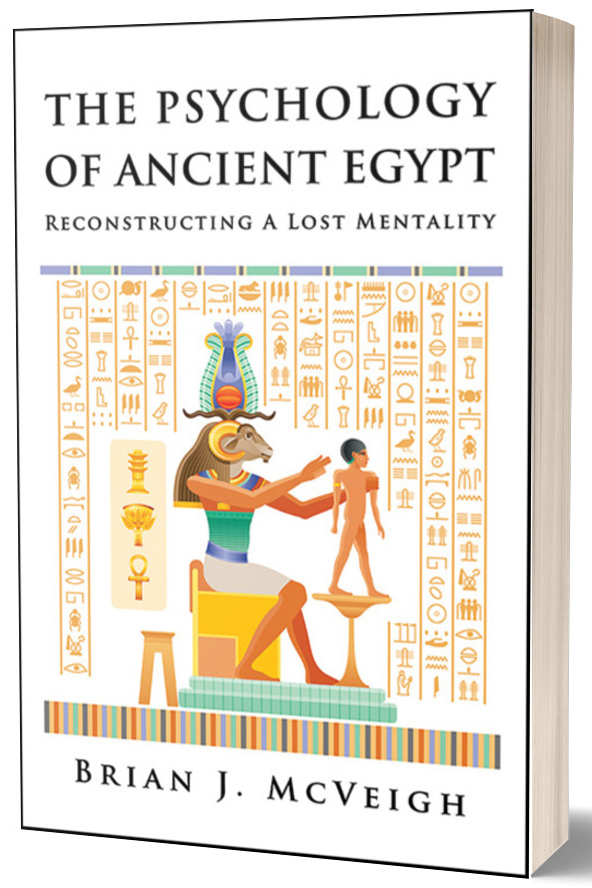The Psychology of Ancient Egypt: Reconstructing A Lost Mentality
Explore the evidence for Jaynes’s theory in ancient Egypt, from anthropologist and Jaynesian scholar Brian J. McVeigh.
Building upon Julian Jaynes’s theory of bicameral mentality, Brian McVeigh reconstructs the worldview of ancient Egypt, with its innumerable gods and goddesses, magnificent temples, and monumental mortuary architecture. By surveying the spiritual landscape of glorified ancestors, radiant gods, and a theocentric social order crowned by awe-inspiring pharaohs that lasted for three millennia, McVeigh argues that depictions of supernatural visitations were more than mytho-literary fabrications. Rather, they were recountings of audiovisual hallucinations interpreted as divine guidance. Moreover, the multiple manifestations of the deceased — Kas (spiritual doubles), Bas (human-headed bird body‒souls), and Akhs (transfigured dead) — evidence hallucinated visitations. This book puts into scientific perspective the mysteries of this impressive civilization, which continue to fascinate the modern imagination. It also challenges the assumption that human psychology does not change through history and the conventional wisdom of Egyptology, as well as offering lessons about cognitive relativism.

Praise for The Psychology of Ancient Egypt
“An insightful analysis of ancient Egyptian psychology, culture, and religion, incorporating perspectives from Julian Jaynes’s bicameral mind theory. A must read for anyone interested in gaining a better understanding of ancient Egyptian civilization and human history.” — Marcel Kuijsten, Executive Director, Julian Jaynes Society